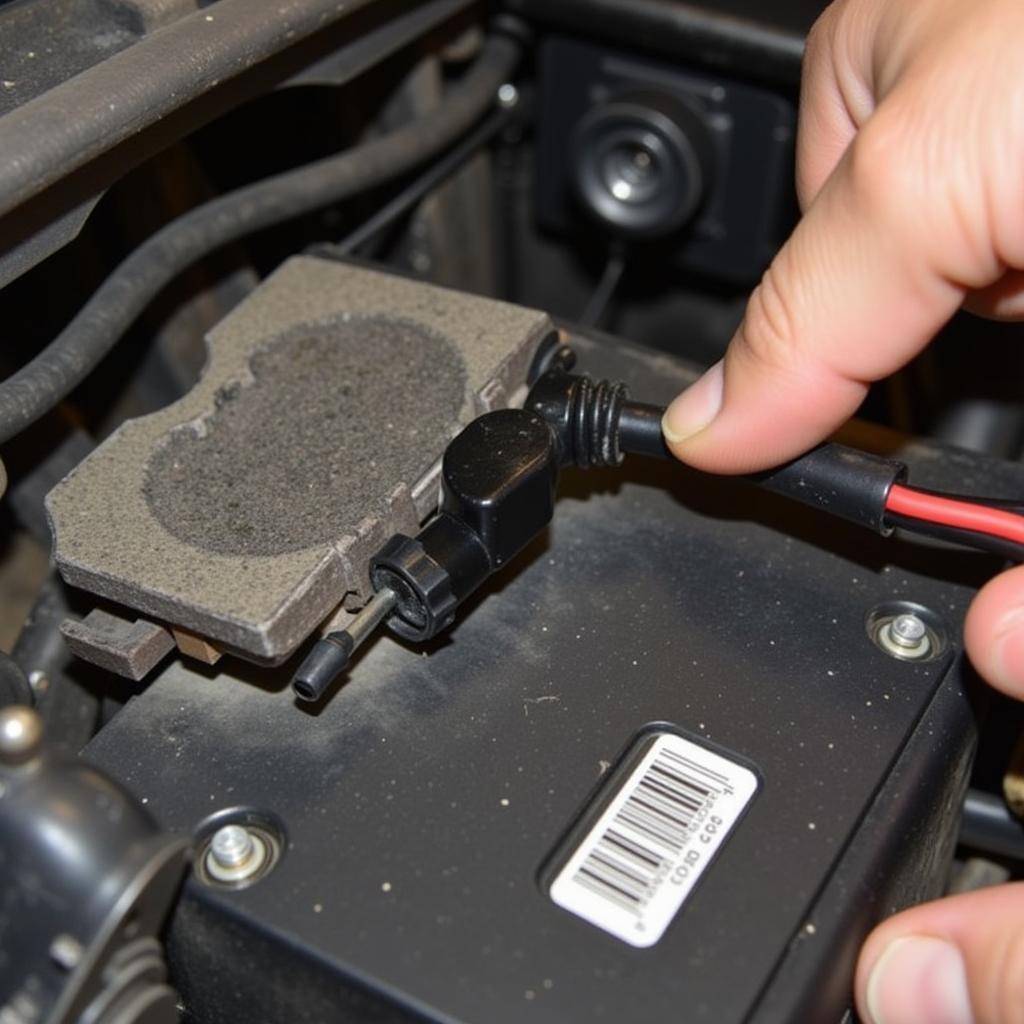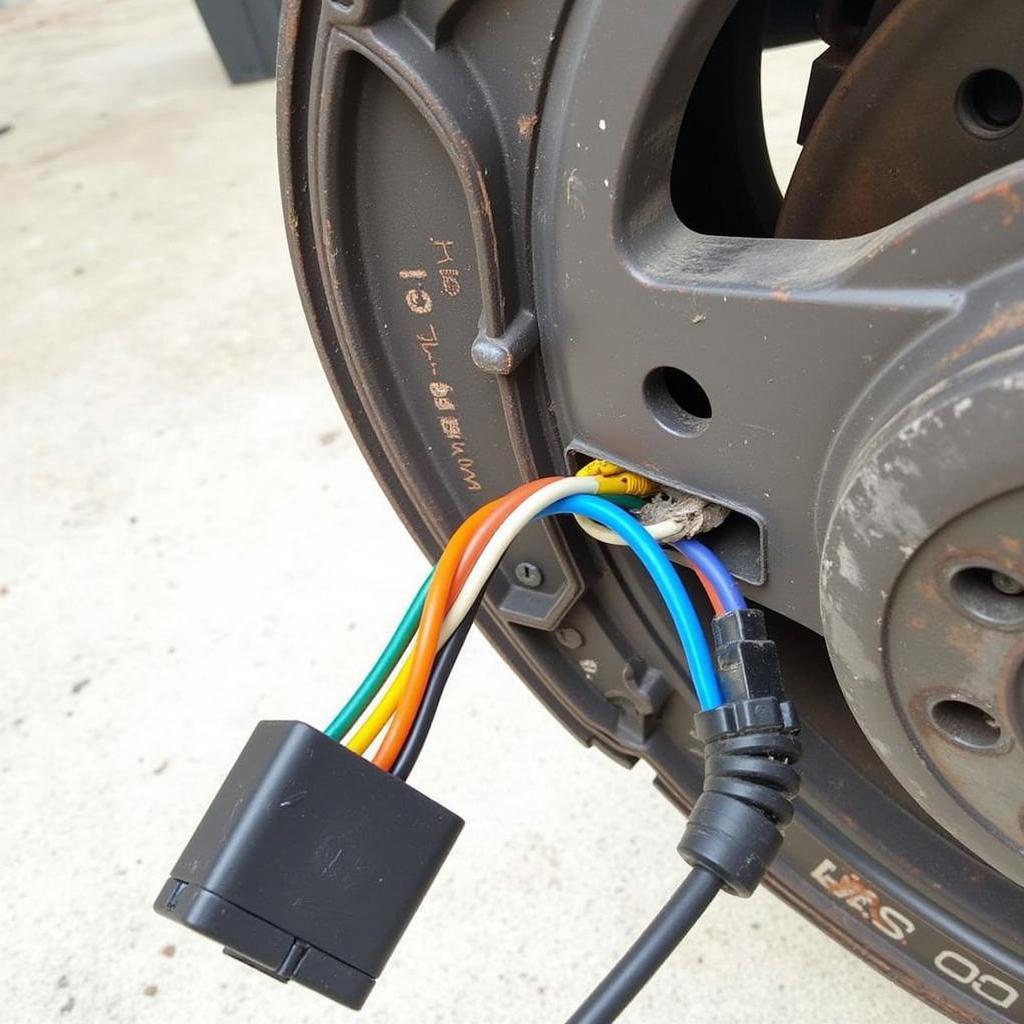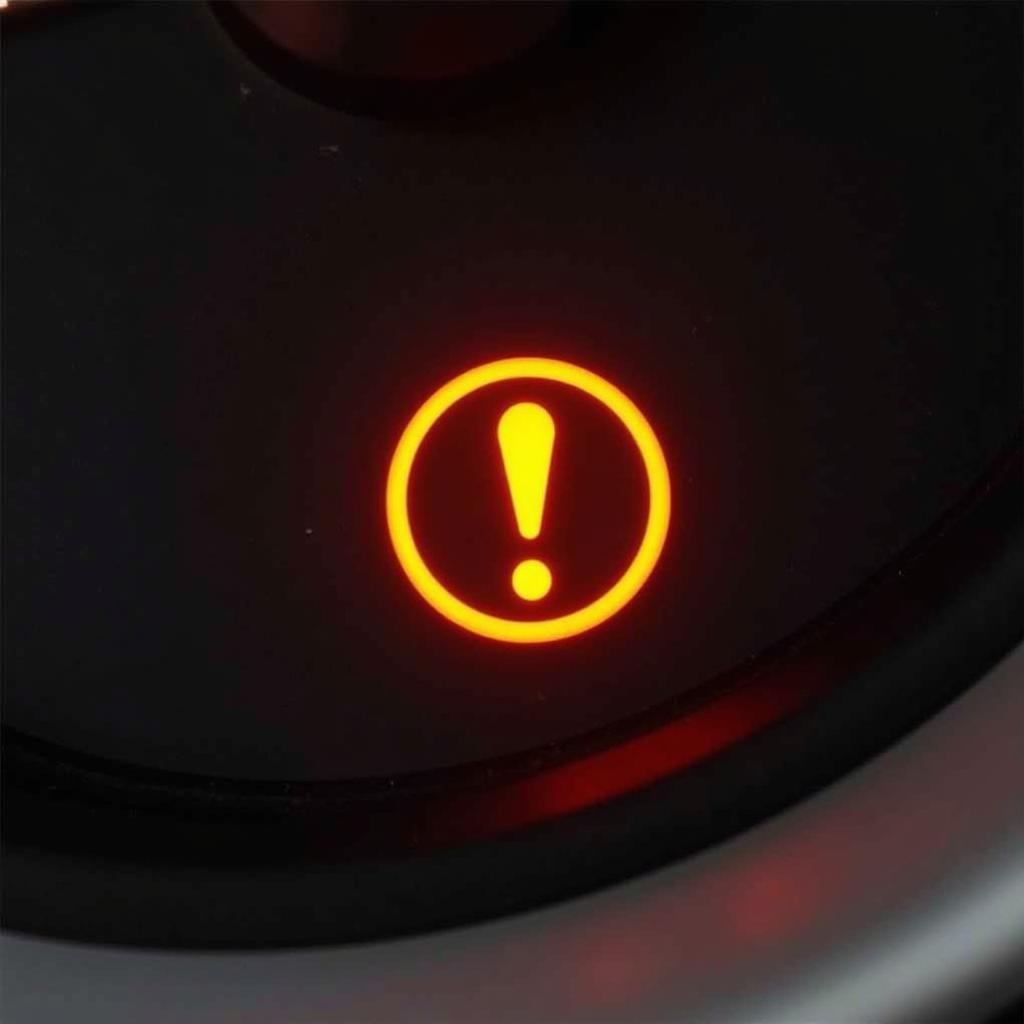You’ve just replaced your BMW’s brake pads – kudos to you for tackling this DIY job! – but the pesky brake pad warning light refuses to go out. Don’t worry, you’re not alone. This is a surprisingly common issue, even for experienced DIYers. This guide will walk you through the potential reasons your BMW brake pad warning light reset isn’t working and provide effective solutions to get you back on the road with confidence.
Common Causes of a Stubborn Brake Pad Warning Light
Several factors could be at play, ranging from simple oversights to slightly more complex sensor issues. Let’s dive in:
1. Incorrect Brake Pad Sensor Installation
The most common culprit is an improperly installed brake pad wear sensor. These sensors are vital components that monitor your brake pad’s thickness and trigger the warning light when they wear down.
Here’s what to check:
- Sensor Connection: Ensure the sensor is firmly plugged into its connector. A loose connection can prevent the reset.
- Sensor Damage: Inspect the sensor for any cuts, kinks, or breaks in the wiring. A damaged sensor cannot communicate with your BMW’s system, making a reset impossible.
- Sensor Compatibility: Always use BMW-approved brake pad sensors specifically designed for your model. Using the wrong sensor can lead to compatibility issues and prevent the light from resetting.
 BMW Brake Pad Sensor Installation
BMW Brake Pad Sensor Installation
2. Faulty Brake Pad Sensor
Even with proper installation, there’s a chance you might be dealing with a faulty sensor right out of the box.
Signs of a faulty sensor:
- Physical damage: As mentioned earlier, inspect the sensor for any visible signs of damage.
- Corrosion: Corrosion on the sensor’s connector pins can disrupt the electrical connection.
Consider testing the sensor for continuity using a multimeter if you suspect it’s faulty.
3. Worn Brake Pad Sensor Wiring Harness
Over time, the wiring harness that connects the sensor to the vehicle’s electrical system can become worn or damaged.
Check for:
- Exposed wires: Look for any areas where the wire insulation has worn away, exposing the wires beneath.
- Pinched or crushed wires: Inspect the harness for any signs of pinching or crushing, which can damage the internal wires.
If the harness is damaged, it will need to be repaired or replaced to restore proper sensor function.
 Damaged Brake Pad Sensor Wiring
Damaged Brake Pad Sensor Wiring
4. Reset Procedure Not Followed Correctly
BMWs have a specific reset procedure that must be followed precisely. Skipping a step or performing it incorrectly can prevent the warning light from resetting.
Refer to your owner’s manual: Consult your BMW’s owner’s manual for the correct reset procedure for your specific model.
5. Software Glitch
In rare instances, a software glitch in your BMW’s system can prevent the brake pad warning light from resetting.
Solution: In this case, you’ll need to have your BMW scanned for Diagnostic Trouble Codes (DTCs) using a professional-grade scan tool. This will pinpoint the source of the glitch, which can then be addressed by updating or reinstalling the necessary software.
Still Having Trouble? It’s Time for Expert Help
If you’ve gone through these steps and the brake pad warning light persists, it’s best to consult with a qualified BMW technician or a specialized auto electrician experienced in BMW diagnostics. They have the expertise and tools to diagnose and resolve more complex electrical or electronic issues that may be causing the problem.
“Ignoring a brake pad warning light can be dangerous,” warns Jake Carter, a veteran BMW technician with over 15 years of experience. “It’s crucial to address the issue promptly to ensure your brakes are functioning optimally.”
 BMW Diagnostic Scan
BMW Diagnostic Scan
FAQs
1. How often should I replace my BMW’s brake pads?
Brake pad lifespan varies depending on driving conditions and habits. However, it’s generally recommended to have them inspected every 10,000-15,000 miles and replaced as needed.
2. Can I drive my BMW with the brake pad warning light on?
While it’s technically possible to drive a short distance with the warning light on, it’s strongly discouraged. Continuing to drive with worn brake pads can lead to rotor damage, reduced braking efficiency, and potentially dangerous situations.
3. Why is it important to use BMW-approved brake pad sensors?
BMW-approved sensors are designed to meet the specific electrical resistance and compatibility requirements of your vehicle’s braking system. Using aftermarket sensors may not provide accurate readings or may trigger warning lights prematurely.
4. How much does it cost to replace a BMW brake pad sensor?
Brake pad sensors are relatively inexpensive, typically costing between $15-$50 per sensor.
5. Can I reset the brake pad warning light myself?
Yes, the brake pad warning light can often be reset at home following the procedure outlined in your BMW’s owner’s manual or by using a compatible OBD-II scanner.
Don’t Let a Warning Light Spoil Your Drive
A persistent BMW brake pad warning light is more than just an annoyance; it’s a signal to investigate and address a potential issue with your braking system. By understanding the common causes and following the troubleshooting steps outlined in this guide, you’ll be well-equipped to tackle the problem head-on and enjoy peace of mind on the road. And remember, when in doubt, a qualified BMW technician is just a phone call away.

